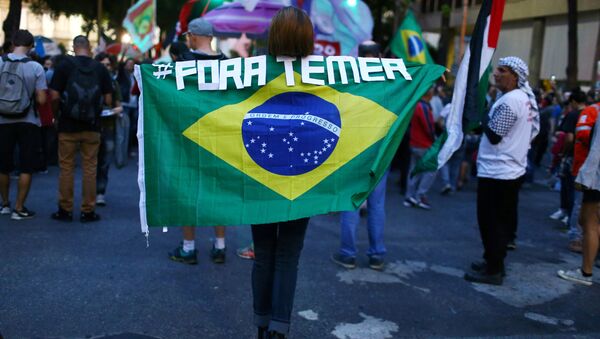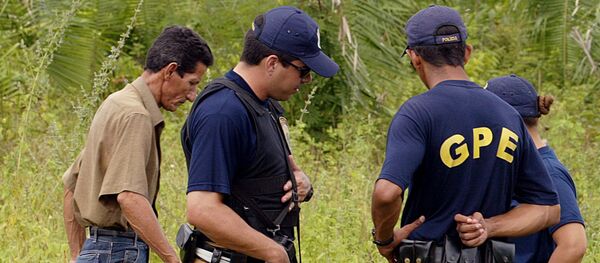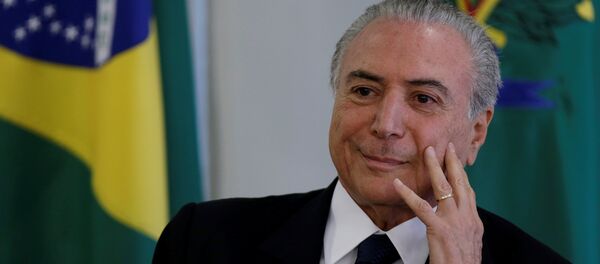AHEAD OF ELECTION
With a presidential election coming up in October 2018, Brazilians are looking for a way to bring changes to their political system, Paulo Ernani, tax auditor and master in public administration from Columbia University, said.
"Brazilians want changes but they don't know how to do that. If the political system doesn't change, how someone new in the political arena could have the support of those political parties? The only solution right now is to accept independent candidates," Ernani explained.
Leonardo Fernandes, policy analyst to the Contas Abertas watchdog group, also believes that society could "voice its discontent" in the next presidential election.
"There is even a chance of an outsider to run and win," Fernandes said, adding that the country has probably already reached the lowest point of the current crisis.
The country’s incumbent President Michel Temer assumed office in August 2016, following the decision of the Federal Senate, the upper house of parliament, to dismiss then-President Dilma Rousseff over allegations of bribery and misuse of state funds.
DISCONTENT WITH PRESIDENT
In May, a major local newspaper, O Globo, obtained a recording allegedly revealing the president's discussions about bribes with the owner of Brazil’s JBS, the biggest meatpacking company in the world. Following the publication, Prosecutor General Rodrigo Janot formally accused Temer of corruption, filing the charges with the Chamber of Deputies, the lower house of the Brazil’s parliament.
The decision of the lower house to block the motion could further infuriate the public, as a recent poll conducted by the market research company IBOPE showed that 81 percent of Brazilians would like to see Temer be tried for corruption.
"The public opinion is fed up with so many cases of public money misuse and this long-standing political and economic crisis. This will open the possibility for the rise of candidates proclaiming to be non-traditional politicians," Fernandes stated.
In recent months, public support for the president has declined. A poll conducted by the IBOPE in late July, showed that only 5 percent of the population supported Temer as the president.
ECONOMIC ASPECT
Temer and his administration have introduced a number of economic reforms since coming to power. The president argues that his proposals are beneficial for the country in the long-term.
"With the support the lower house has given me, we will pass all the reforms that the country needs," Temer stated shortly after the vote in the Congress.
"His austerity policies are fake, since he keeps spending billions on suspicious enterprises and he hasn't ordered an auditing in the Federal government," Paulo Ernani said.
Fernandes added that "there is an exhaustion sentiment widespread," as the crisis has been ongoing for a long time.
"People want to move on and hope that the economy starts to improve, so the unemployment goes down and prices stop increasing due to inflation," Fernandes explained.
The scandals over corruption cases have been surrounding Brazilian top-level officials for years now, and apart of impeachment of ex-President Rousseff include the recent conviction of former President Luiz Inacio Lula da Silva, who was sentenced to almost ten years in prison in July.



